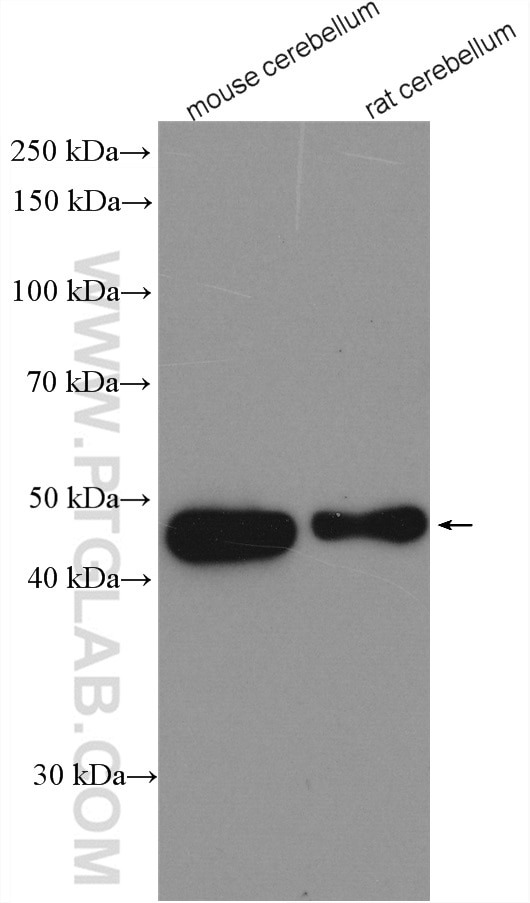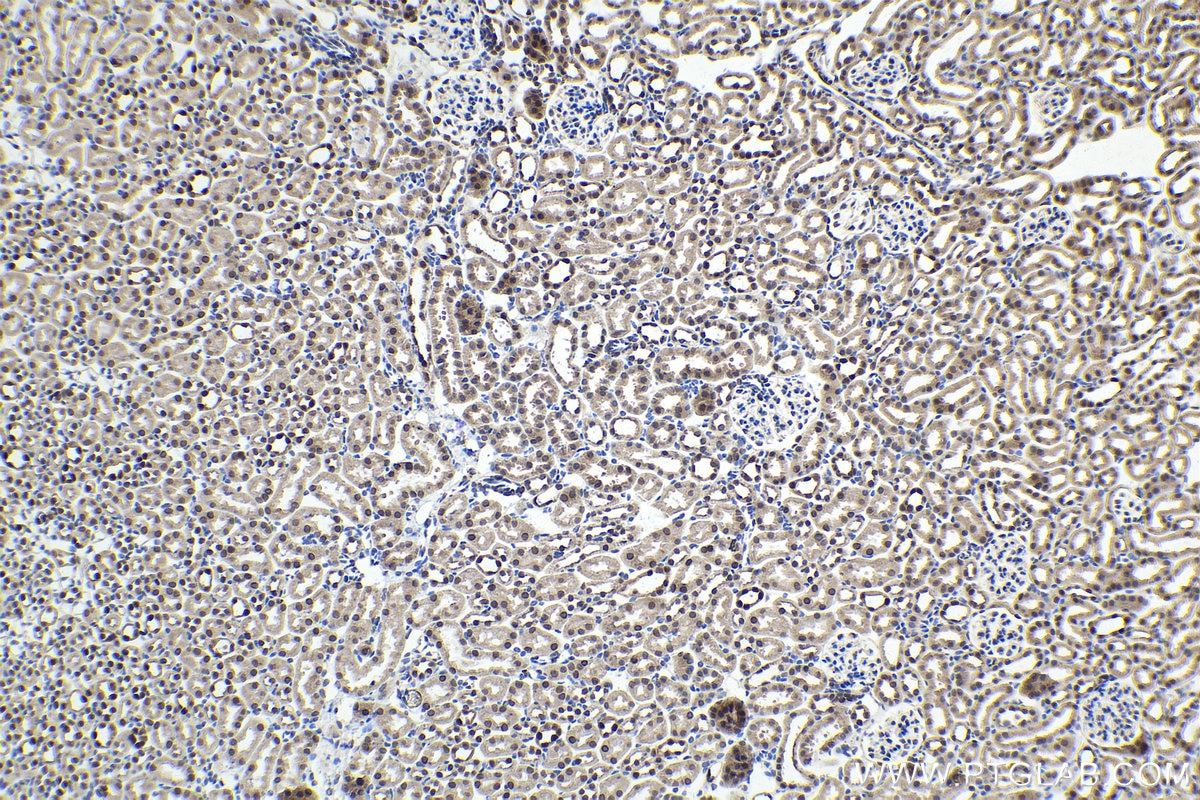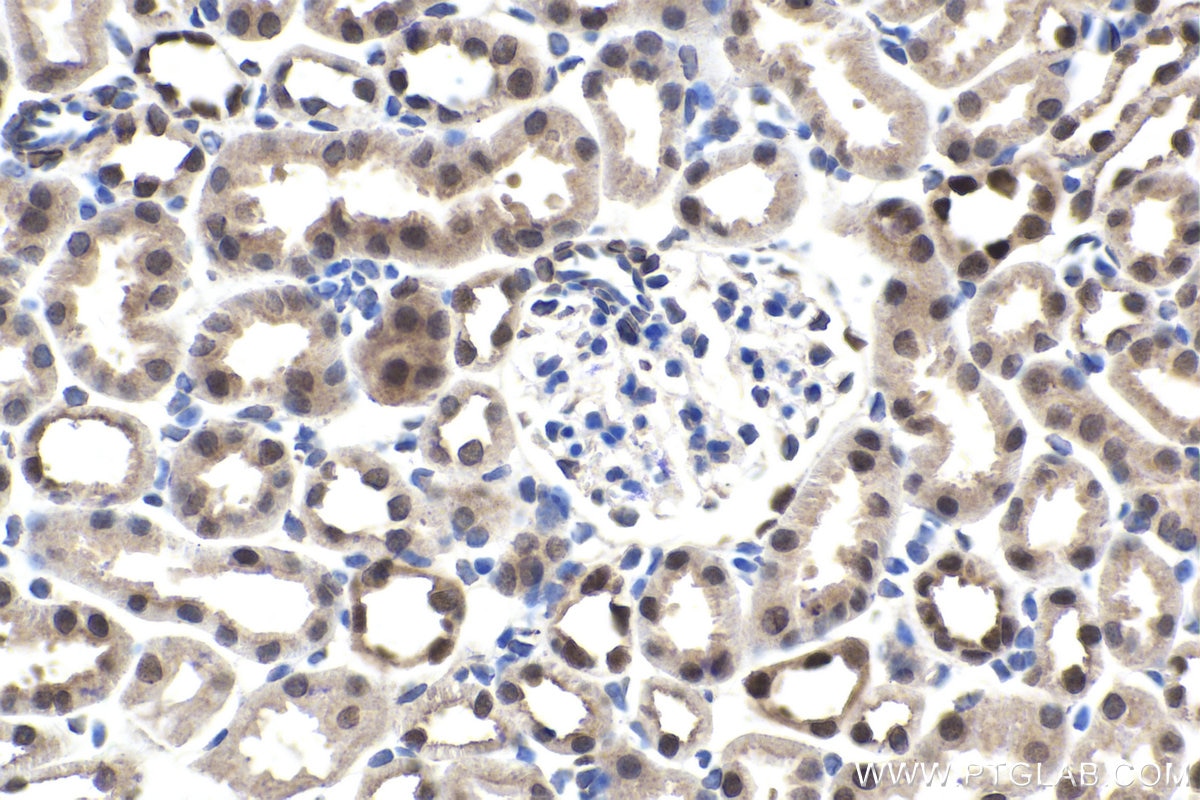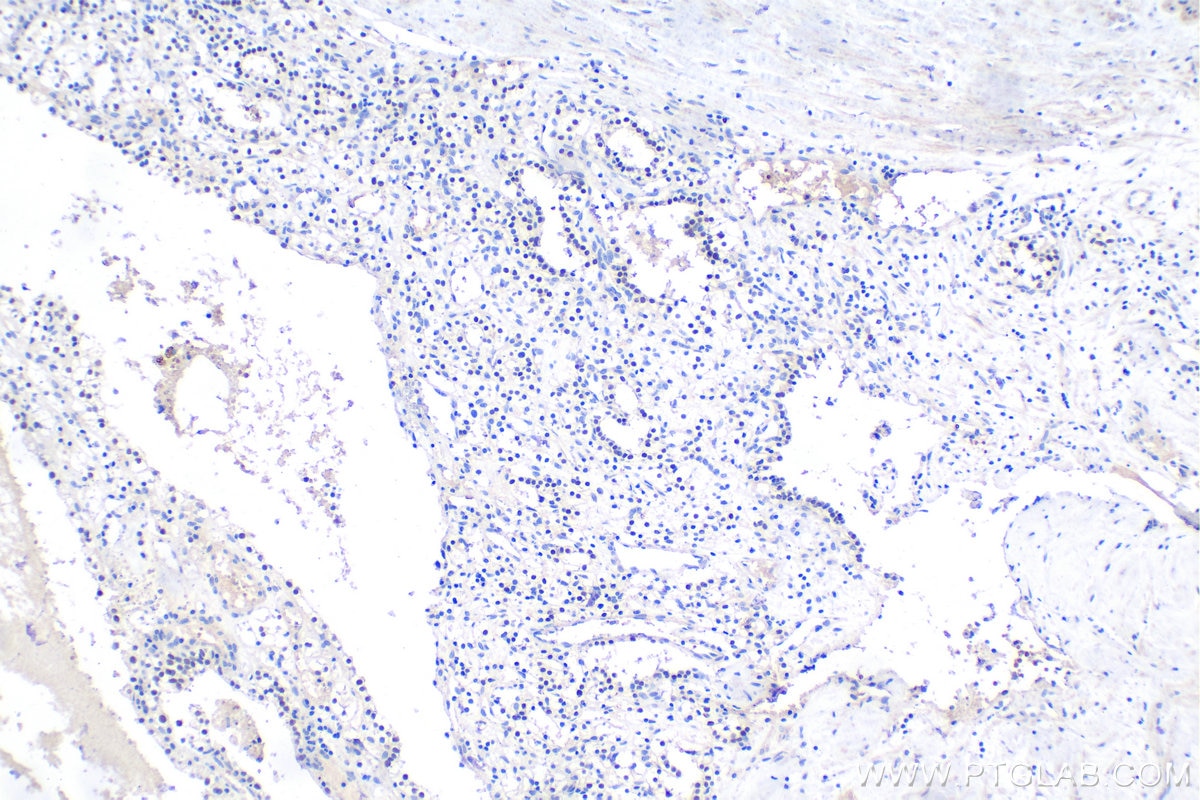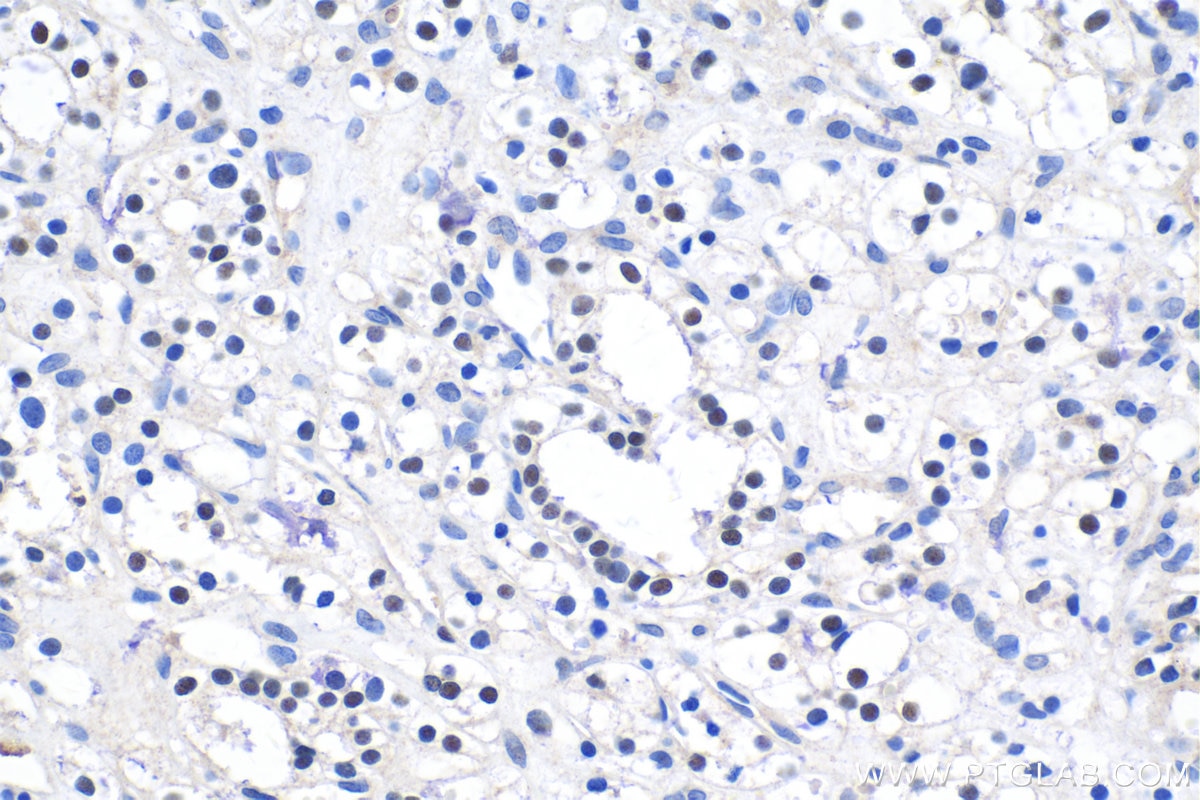Anticorps Polyclonal de lapin anti-PAX2
PAX2 Polyclonal Antibody for WB, IHC, ELISA
Hôte / Isotype
Lapin / IgG
Réactivité testée
Humain, rat, souris
Applications
WB, IHC, ELISA
Conjugaison
Non conjugué
N° de cat : 29307-1-AP
Synonymes
Galerie de données de validation
Applications testées
| Résultats positifs en WB | tissu de cervelet de souris, tissu de cervelet de rat |
| Résultats positifs en IHC | tissu rénal de souris, tissu de carcinome à cellules rénales humain il est suggéré de démasquer l'antigène avec un tampon de TE buffer pH 9.0; (*) À défaut, 'le démasquage de l'antigène peut être 'effectué avec un tampon citrate pH 6,0. |
Dilution recommandée
| Application | Dilution |
|---|---|
| Western Blot (WB) | WB : 1:500-1:2000 |
| Immunohistochimie (IHC) | IHC : 1:500-1:2000 |
| It is recommended that this reagent should be titrated in each testing system to obtain optimal results. | |
| Sample-dependent, check data in validation data gallery | |
Applications publiées
| WB | See 1 publications below |
| IHC | See 1 publications below |
| FC | See 1 publications below |
Informations sur le produit
29307-1-AP cible PAX2 dans les applications de WB, IHC, ELISA et montre une réactivité avec des échantillons Humain, rat, souris
| Réactivité | Humain, rat, souris |
| Réactivité citée | Humain |
| Hôte / Isotype | Lapin / IgG |
| Clonalité | Polyclonal |
| Type | Anticorps |
| Immunogène | PAX2 Protéine recombinante Ag30717 |
| Nom complet | paired box 2 |
| Masse moléculaire calculée | 431 aa, 46 kDa |
| Poids moléculaire observé | 45 kDa |
| Numéro d’acquisition GenBank | BC148710 |
| Symbole du gène | PAX2 |
| Identification du gène (NCBI) | 5076 |
| Conjugaison | Non conjugué |
| Forme | Liquide |
| Méthode de purification | Purification par affinité contre l'antigène |
| Tampon de stockage | PBS with 0.02% sodium azide and 50% glycerol |
| Conditions de stockage | Stocker à -20°C. Stable pendant un an après l'expédition. L'aliquotage n'est pas nécessaire pour le stockage à -20oC Les 20ul contiennent 0,1% de BSA. |
Informations générales
PAX2 is a transcription factor, primarily expressed during embryonic development. It has a critical role in the development of the urogenital tract, the eyes, and the CNS. It plays a key role during renal development and to act as an oncogene favoring renal tumor growth. PAX2 was suggested as a sensitive and highly specific marker for renal cell carcinoma (RCC).
Protocole
| Product Specific Protocols | |
|---|---|
| WB protocol for PAX2 antibody 29307-1-AP | Download protocol |
| IHC protocol for PAX2 antibody 29307-1-AP | Download protocol |
| Standard Protocols | |
|---|---|
| Click here to view our Standard Protocols |
Publications
| Species | Application | Title |
|---|---|---|
Sci Bull (Beijing) Reprogramming of Ovarian Granulosa Cells by YAP1 Leads to Development of High-Grade Cancer with Mesenchymal Lineage and Serous Features. | ||
Cells Human iPSC-Derived Renal Cells Change Their Immunogenic Properties during Maturation: Implications for Regenerative Therapies. | ||
J Cell Mol Med Chemerin's Role in Endometrial Dysfunction: Insights From Transcriptomic Analysis |
